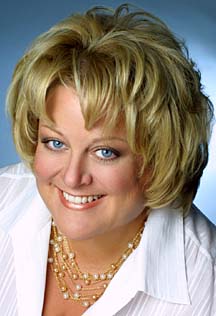
REVIEW
Soprano Deborah Voigt
dazzles fans with powerAn unfortunate consequence of Friday's heavy rains was that Deborah Voigt, the leading dramatic soprano of our day, sang a memorable concert of Wagner and Strauss to a half-empty house.
A true dramatic soprano is one of the rarest voice types. Not only are the necessary physical endowments very seldom encountered, but the voice must be developed by years of training and infinite patience, as most dramatic voices do not come into their own until after age 30. Great dramatic sopranos come along once every generation or so and are revered for their ability to sing the heaviest Romantic repertoire with power and ease.
PHOTO COURTESY DEVON CASS
Diva in Paradise
Deborah Voigt and the Honolulu Symphony
In concert: 4 p.m. today
Place: Blaisdell Concert Hall
Tickets: $16 to $59
Call: 792-2000, or Ticketmaster at 877-750-4400
With the first phrase of Wagner's "Dich, teure Halle," Voigt made it clear why she was named Musical America's Vocalist of the Year for 2003 and why she received a 23-minute ovation for her Isolde at the Vienna Staatsoper in May. The power of her voice is electrifying, while the beauty of her tone and the elegance of her phrasing make the total package a thing of wonder.
The second half of the concert was devoted to Richard Strauss' "Four Last Songs." Hans von Bülow called Strauss "Richard the Third," explaining that after Wagner there could be no Richard II, but that Strauss was the closet thing. As in many of the composer's works, there are clear echoes of Wagner's style and orchestral techniques. Voigt sang the reflective set with exquisite beauty and understanding, demonstrating that even at her young age she is capable of interpreting meaningfully these songs on death.
She proved her generosity by giving three crowd-pleasing encores: Strauss' "Zueignung" (Dedication), Lerner and Loewe's "I Could Have Danced All Night," and Gershwin's "Someone to Watch Over Me."
The orchestra performed two Wagner overtures in the first half. The overture to "Tannhäuser" depicts the dichotomy between good and evil, and on Friday evening, good clearly won out.
The opening five-minute passage on the "Pilgrim's Chorus" was a beautifully shaped arc of sound that rose seamlessly from pianissimo to fortissimo and back again, but the Venusberg music that followed seemed to be slightly under tempo and lacked the sensuous, capricious quality required to tempt the protagonist from virtue. The work featured fine solo turns by clarinetist Scott Anderson and harpist Constance Uejio. The overture to "Der fliegende Holländer" was dramatically interpreted by Samuel Wong and the orchestra, highlighting the powerful French horn and trombone sections.
It would not surprise me to learn that persons who heard Friday's concert are buying tickets to hear today's as well, for there is no telling how long it will be until the Blaisdell Center hosts a singer of this caliber again.
E. Douglas Bomberger is a professor of music at the University of Hawaii at Manoa
